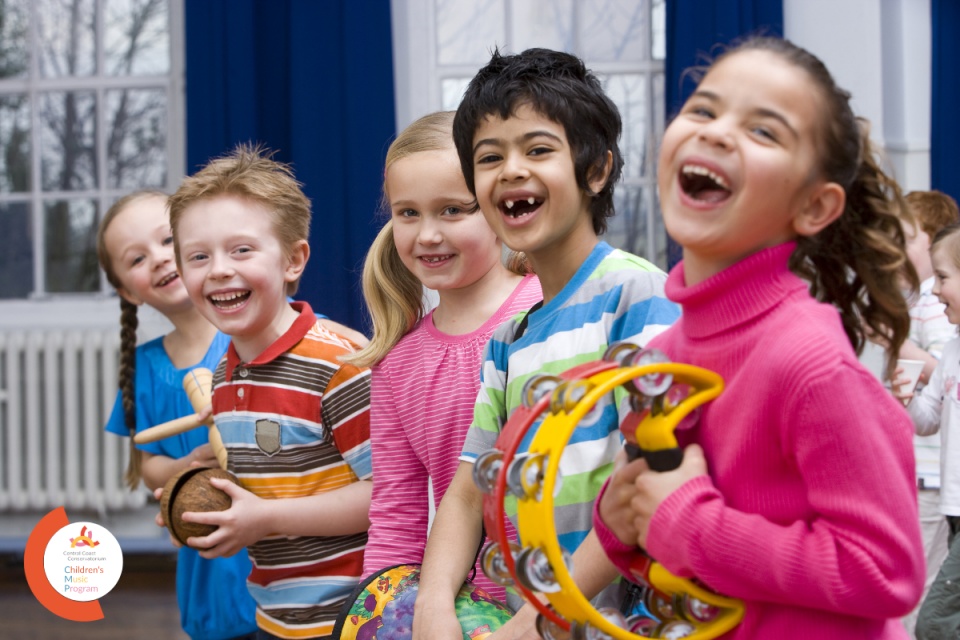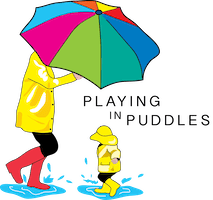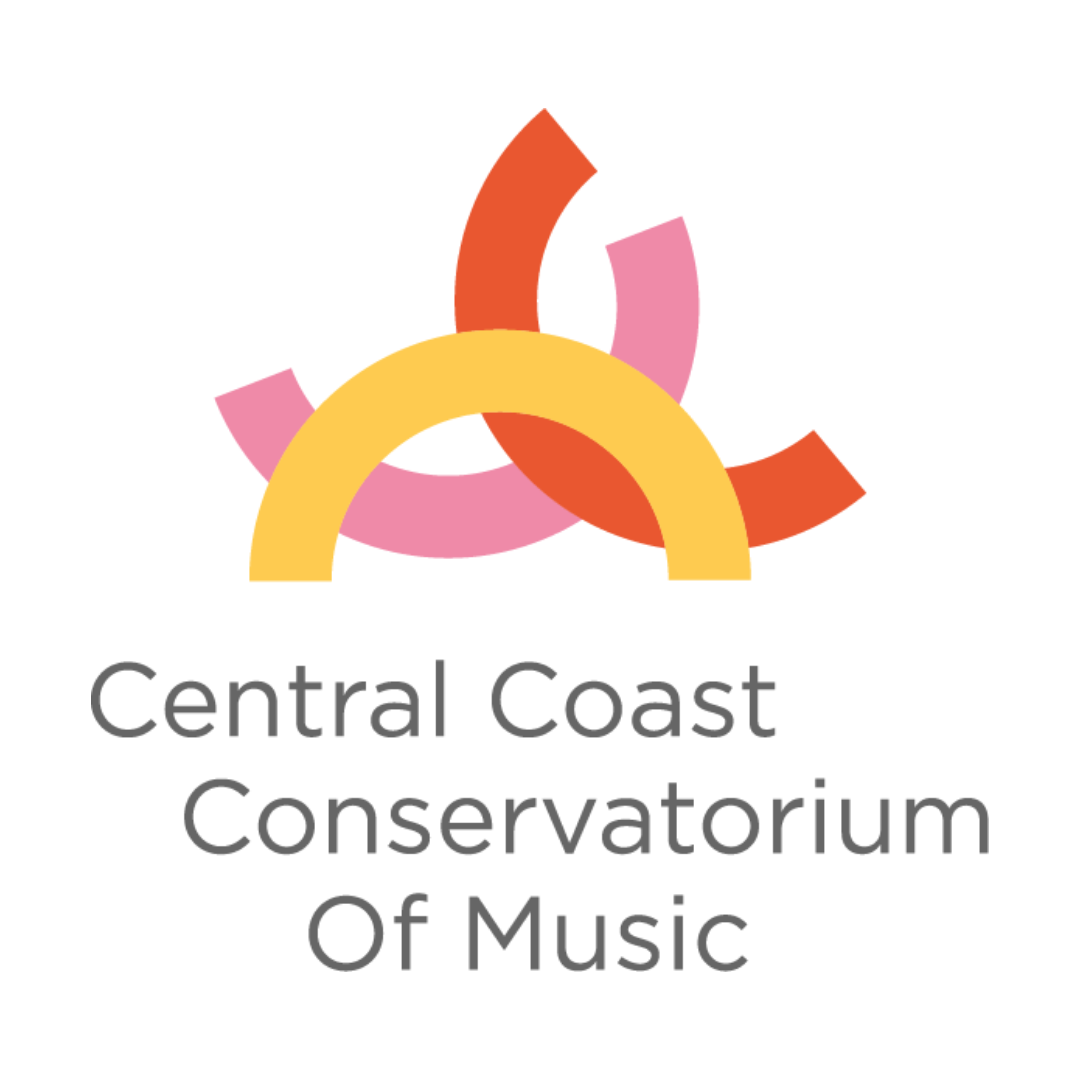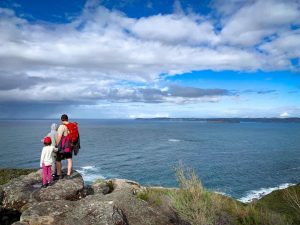Is your child starting school next year? Give your child a wonderful start by enrolling them in the Central Coast Conservatorium’s research-based children’s music program: it’s a great way to build confidence, reading readiness, and make new friends.
There is a swathe of evidence that suggests learning a musical instrument can help with your child’s numeracy and literacy development. And the great news for local families is that the Central Coast Conservatorium’s Children’s Music Program (CMP) offers early childhood music education all the way from babies up to primary school-aged children.
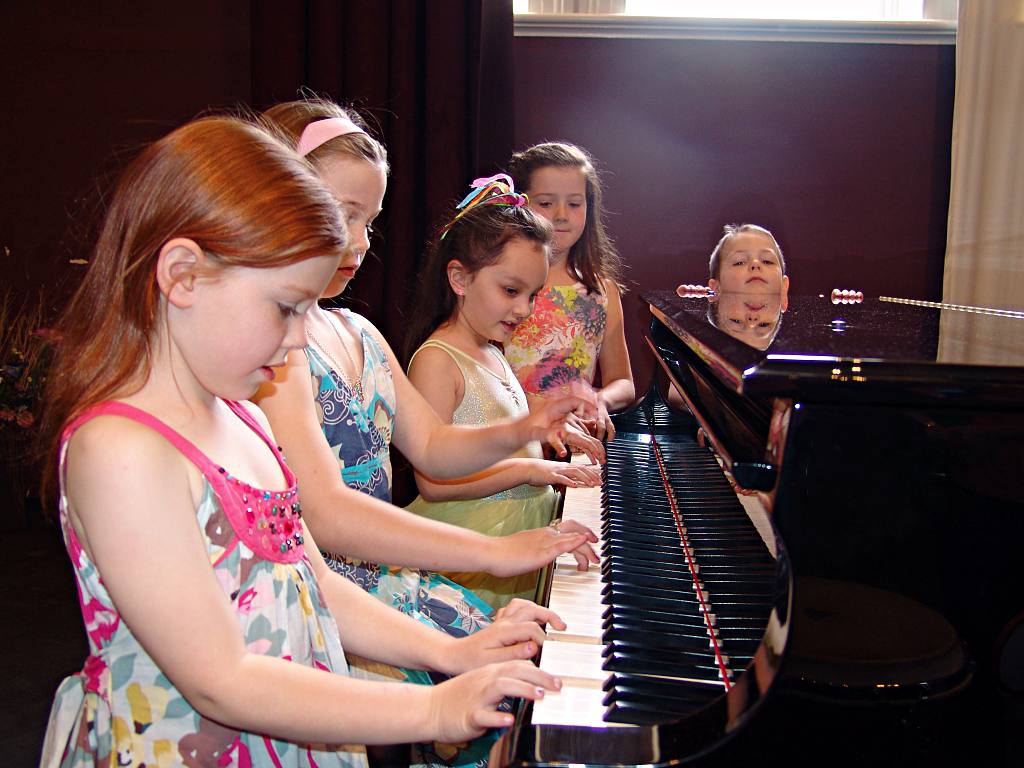
CMP teacher Joanne McMahon is part of the team of dedicated music teachers who have been nurturing a love for music in babies, toddlers, preschoolers and school-aged children for over 25 years at The Con. Joanne recently caught up with us to talk through the benefits of attending a music class with your tiny tots.
“Participating in early childhood music classes is one of the best things you can do with children – from babies up to preschoolers,” says early childhood music specialist Joanne.
Joanne goes on to explain, “Children are born with particular neural mechanisms just for processing musical information… The person-to-person interaction we see in early childhood music classes, through singing games and moving to music, really fires up the brain and stimulates these interconnecting synapses.”
As well as building brain pathways – especially for language – music is of course a fun and interactive class for children to attend.
“Creative kids love making new friends as they sing, dance and play,” says Joanne. “And parents bond with their children in a very special way as they attend all classes up to the age of three years.”
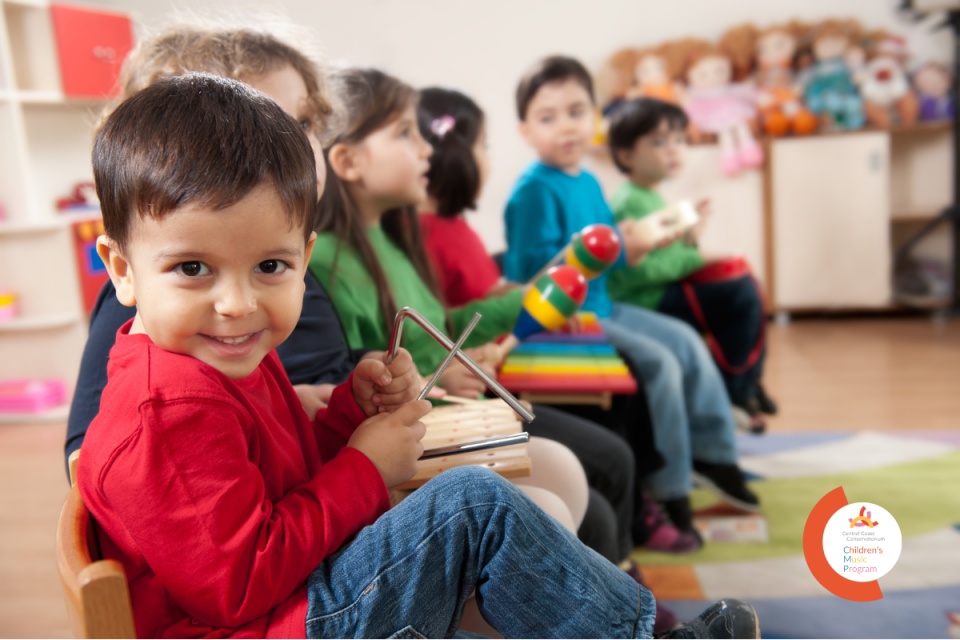
Participation in an early-learning music program has a number of benefits:
● Develops social skills (including bonding with the parent or carer who attends the class).
● Increases a child’s sensory development.
● Develops coordination skills.
● Develops concentration.
● Helps children learn the sounds and meanings of words.
● Develops social and teamwork skills by learning to share and play a variety of different instruments.
● Facilitates emotional expression.
● Develops self-regulation.
“Without even noticing how much they’ve learned, they’ll be ‘reading and writing’ music by the end of this year. You’ll be amazed at their rate of development over this year. Kinder teachers constantly tell us they can pick our students within days of starting school, as they stand out from the pack, having such a secure foundation in literacy, numeracy and class social skills,” says Joanne.
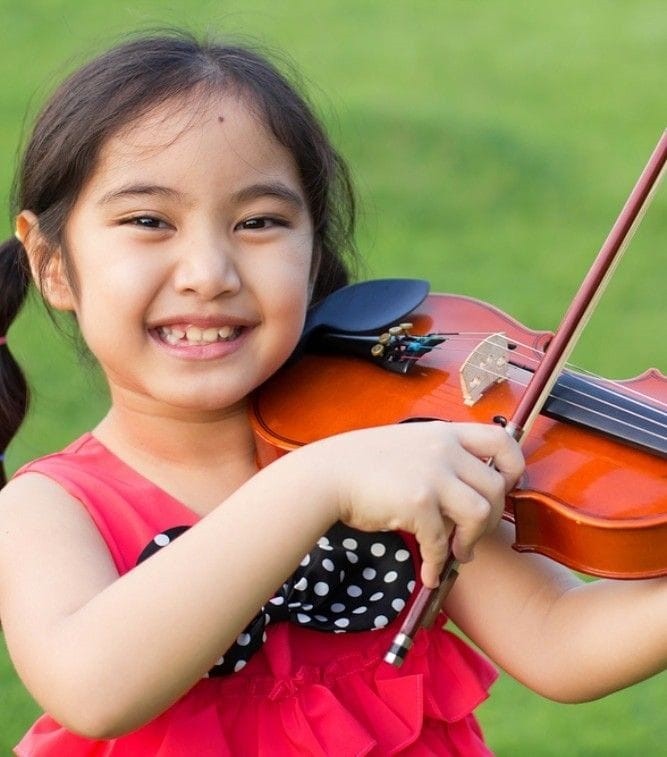
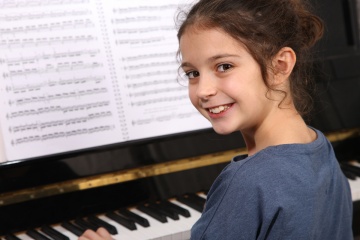
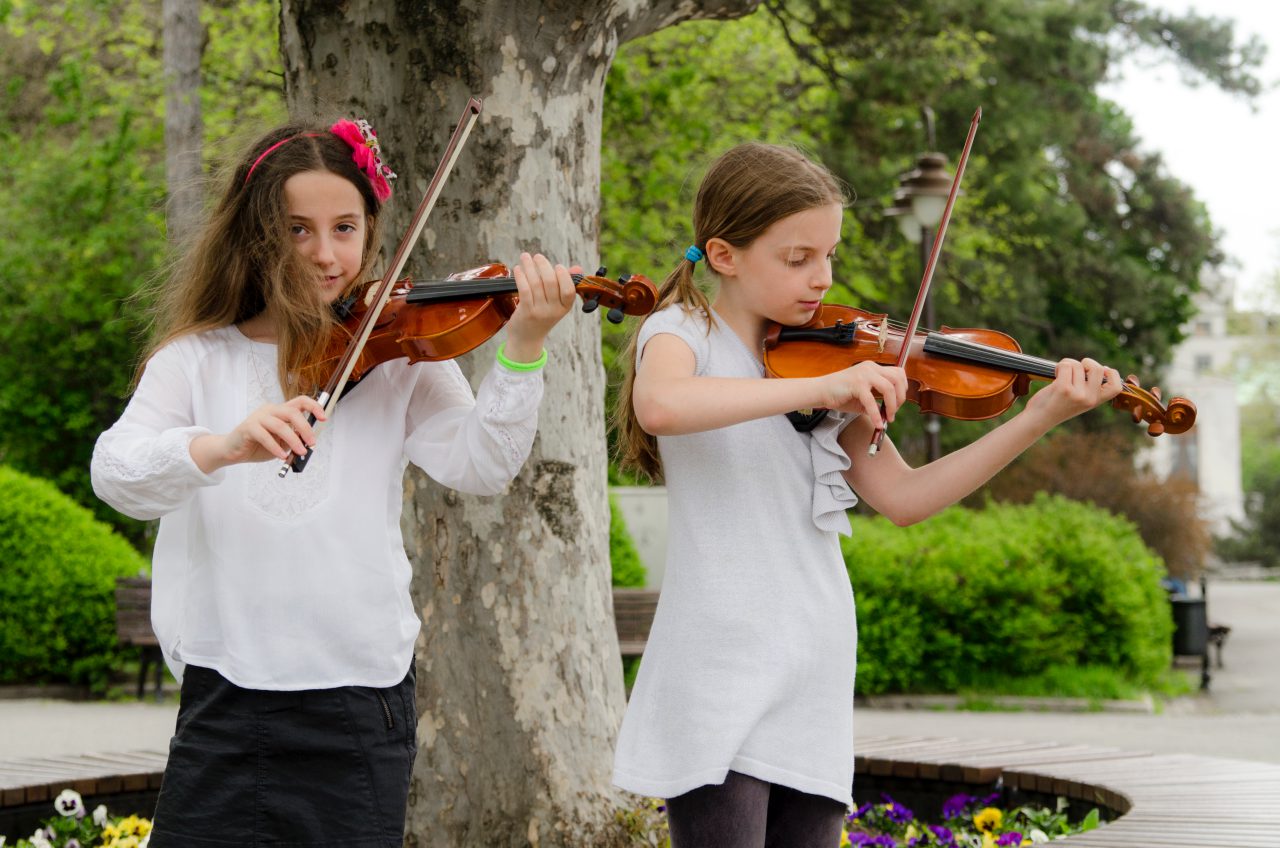
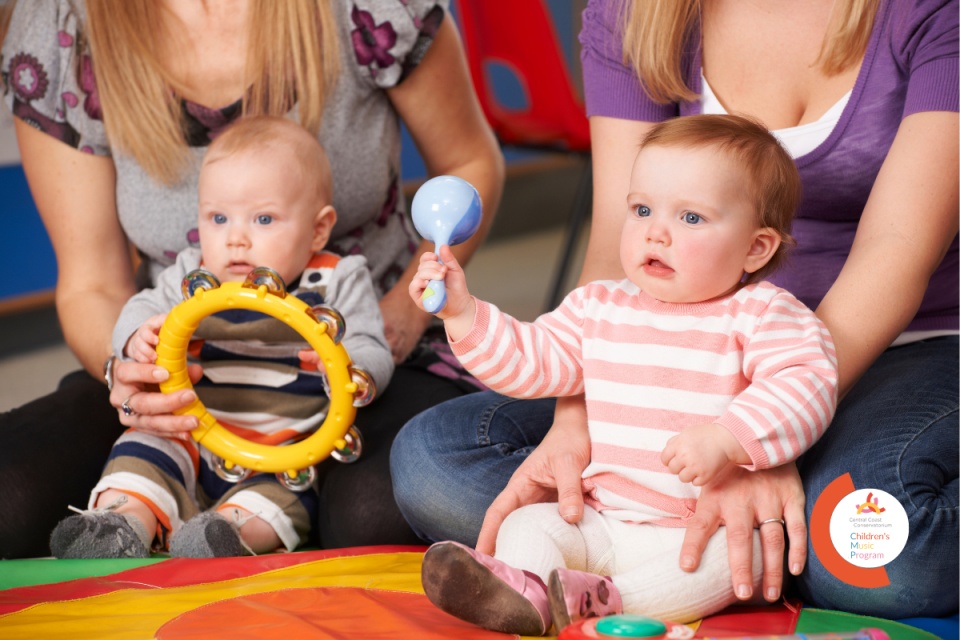
Central Coast Conservatorium’s Children’s Music Program Class Times
The CMP early childhood music classes are held on Mondays, Tuesdays and Fridays in Gosford, West Gosford and Woy Woy.
There are four levels:
● Baby Beats: 0-2 years. Children are accompanied by a parent/caregiver who participates in all activities.
● Mini Music Makers: 2-4 years. Children are accompanied by a parent/caregiver who participates in all activities.
● Mini Maestros: 4-5 years. Mini Maestros builds on the skills and concepts from Baby Beats and Mini Music Makers while encouraging children’s independence.
● Young Musicians: 5-10 years. Young Musicians is a sequential program for school-aged children aged 5 to 10 years. Each level spans one school year (four terms). Students will study choral work and learn to play several musical instruments.
To learn more about the Central Coast Conservatorium of Music and all they offer, check out their website.
Website: Central Coast Conservatorium of Music
Phone: 4324 7477.

